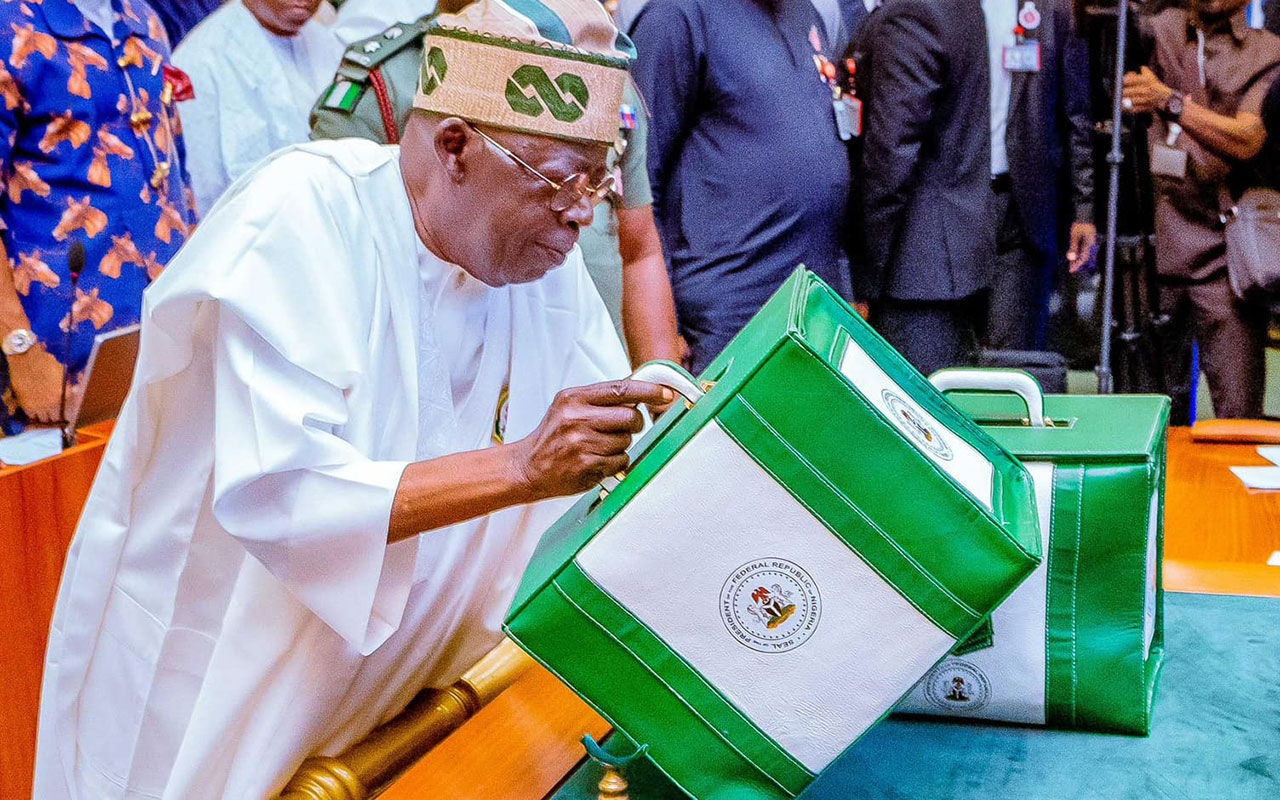• MTEF adjustment demand may push 2026 budget presentation to next year
• States move ahead of Federal Government
• MDAs sinking in despair as poor funding continues
With the timelines of the 2026 budget still remotely uncertain, a wave of tension is sweeping through the market, including the public sector system, heightening fears that Nigeria, again, is consolidating in another era of unpredictable fiscal cycles, hasty appropriation approvals, weak fiscal culture, and chaotic project delivery.
Six weeks to the beginning of another fiscal year, the executive does not seem to be in a hurry to speed up the budgeting process. The Federal Executive Council (FEC), which is expected to give its approval before it is transmitted to the National Assembly, has yet to receive it.
The delay may be compounded by the Senate’s demand for a comprehensive performance report on the 2024 budget, 2025 capital component implementation projections and the Medium Term Expenditure and Fiscal Strategy Paper (MTEF/FSP).
The directive was issued in early October by the Chairman of the Senate Committee on Finance, Mohammed Sani Musa, after a closed-door session with the Minister of Finance and Coordinating Minister of the Economy, Wale Edun; Accountant-General of the Federation, Samsudeen Ogunjimi; and the Director-General of the Budget Office, Tanimu Yakubu.
Musa said the committee told the members of the national economic management team that the presentation MTEF/FSP for 2026–2028 would follow after the submission of the requested reports on October 23.
In October, the team released a scanty performance report of the fourth quarter of the 2024 budget, which is still being implemented. The Guardian could not confirm if the Senate received a copy of the report and whether it was satisfied with the content.
Already, the handling of the adjusted MTEF/FSP, a rolling plan that was designed to foster medium-term fiscal stability, has undermined the Fiscal Responsibility Act (FRA), the Holy Grail of financial accountability and discipline.
Its provisions require that the MTEF/FSP be adjusted to reflect current macroeconomic indicators and transmitted to the National Assembly not later than four months before every financial year for consideration and approval.
“The Federal Government after consultation with the states shall not later than six months from the commencement of this Act, cause to be prepared and laid before the National Assembly, for their consideration a MTEF for the next three financial years and thereafter, not later than four months before commencement of the next financial year, cause to be prepared a MTEF for the next three financial years.
“The framework so laid shall be considered for approval with such modifications, if any, as the National Assembly finds appropriate by a resolution of each House of the National Assembly,” a section of the act reads.
Indeed, there are significant material changes in the economic indicators that have invalidated key parameters of the 2025-2027 MTEF/FSP. Hence, a modification as recommended by MTEF is necessary.
First, the moving average of oil prices, which it pegged at $75 per litre, has not exceeded $70 in the past six months. A conservative projection of the oil prices in the rolling plan may not exceed $65 per litre.
Even in the face of a bullish outlook, the government may also need to relax the two million barrel per day (mbpd) projection. Yes, the government has shown commitment to increasing investment inflow, reducing oil theft and opening up dormant wells. Still, there is nothing in the books that shows the country can meet the target in the short- to medium-term.
Less than 45 days to the end of the year, the executive has either not reworked the MTEF template, the grundnorm of yearly appropriations, or transmitted the same to the National Assembly for approval.
The document, which is prepared by the Ministry of Budget and Economic Planning alongside its flagship agency (the Budget Office) in consultation with the Ministry of Finance, will be submitted to the FEC, which statutorily meets once a week or at the behest of the President, for approval.
FEC could send the document back to the ministry for adjustment, which could extend life at FEC to three weeks. Such documents had enjoyed a short turnaround time at FEC, however.
An accelerated process could see President Bola Tinubu and his cabinet skipping this important process. But that would leave the economy the huge burden of untidiness, disregard for established legal process and a chaotic fiscal environment, which would increase market risk and weaken confidence.
The executive has the option of flowing through this process while also giving the parliament sufficient time for thorough legislation or circumventing the eight stages of the budgeting process. The latter is not new to the government, whether this administration or the previous one.
Sadly, rubber-stamping legislation comes with costly consequences – spurious assumptions, unrealistic revenue targets, un-executable appropriations, as well as spending and development needs mismatch. Both the 2024 budget, which had been extended to December 31, and the running one are battling these consequences.
Amidst rising uncertainty, there is a growing discontent in the leadership of the MDAs over the continued underfunding of critical programmes. Two different sources told The Guardian at the weekend that the crisis of funding is dampening the motivation of the rank and file of the institutions.
In many cases, critical human capital development programmes, it was learnt, have been put on hold for upward of two years, even as some struggle with basic work tools.
These affect the efficiency of service delivery, a director at a major ministry lamented. With less than two months to the end of the current budget, there is no interim report on the performance of the budget. Previously, budget implementation reports (BIRs) were updated quarterly, a culture that has been suspended in the past two years, lowering the transparency bar of the budget tradition.
The Guardian, a few months ago, reported that the 2025 budget had yet to commence. Subsequently, the government promised that the budget implementation would begin before the end of September.
“The implementation of the 2025 budget will begin by the end of September. The 2025 budget, referred to as the ‘Budget of Restoration,’ aims to address key sectors, boost economic growth, and improve public services. Effective execution and fiscal discipline will be vital to the success of this budget,” Yakubu told Nigerians during stakeholders’ engagement.
Plus, the stalemate of the 2025 budget, contractors who had duly completed their jobs have been fighting tooth and nail to get paid. Three weeks ago, protests by the unpaid compelled the House of Representatives to end its plenary.
To reduce poor funding tension in the public sector, the Minister of Finance and Coordinating Minister of the Economy, Wale Edun, some months ago, introduced a new policy requiring government MDAs to obtain warrants and an authority to incur expenditure (AIEs) before awarding new contracts or making financial commitments. The new practice aims to ensure fund availability before a contract is signed.
But those familiar with the government’s widening revenue and expenditure mismatch said the government would need a major financial injection to clear outstanding obligations to enable new fiscal discipline actions to have significant impacts.
As the Federal Government drags its feet on next year’s budgeting cycle and is burdened with overlapping appropriations, state governments, which hitherto drew on the central authority’s economic parameters, have moved with the usual fiscal guidance from the centre.
Already, the yearly legislative fireworks have begun in states like Bayelsa, Cross River, Ekiti and Osun, where the appropriation bills have been presented to lawmakers for consideration.
With several state governors currently holding town hall meetings ahead of their proposals, the next few weeks promise to be busy for many sub-regional budget offices.
Last year, the Presidency held back the 2025 appropriation document till a few days before Christmas. But there was hope this year could mark Tinubu’s reversal of early presentation in July when the Budget Office of the Federation issued the 2026 Personnel Cost Budget Call Circular.
The circular, signed by Yakubu and addressed to ministers, permanent secretaries, service chiefs and chief executives of parastatals, directs them to commence preparations for the personnel component of their budget proposals for the 2026 fiscal year.
The circular suggested that the 2026–2028 MTEF/FSP would be concluded in July 2025 in line with the FRA to ensure the timely transmission of the budget to the legislature.
“As you are aware, the 2026–2028 MTEF/FSP should be concluded by July 2025 in line with the Fiscal Responsibility Act 2007 to facilitate the submission of the 2026 budget to the National Assembly by September 2025,” the circular gleaned from the website of the Budget Office read.
For an economy where public sector patronage is determinant of the survival of many private sector operators, delay in approving the legislative framework for the government’s spending has serious consequences for economic growth and citizens’ wellbeing.






